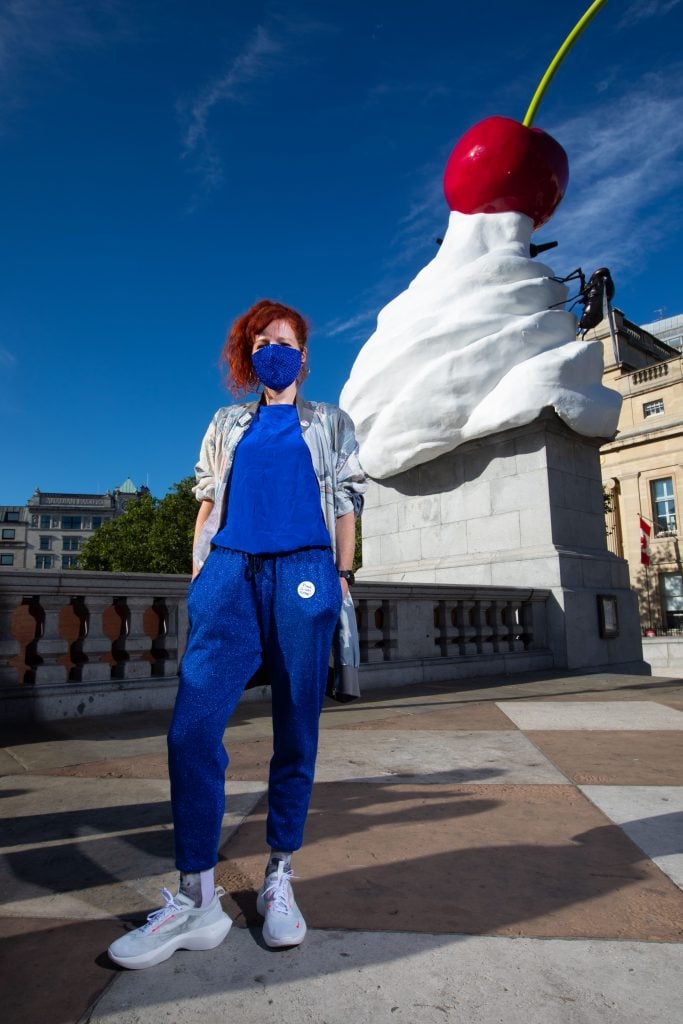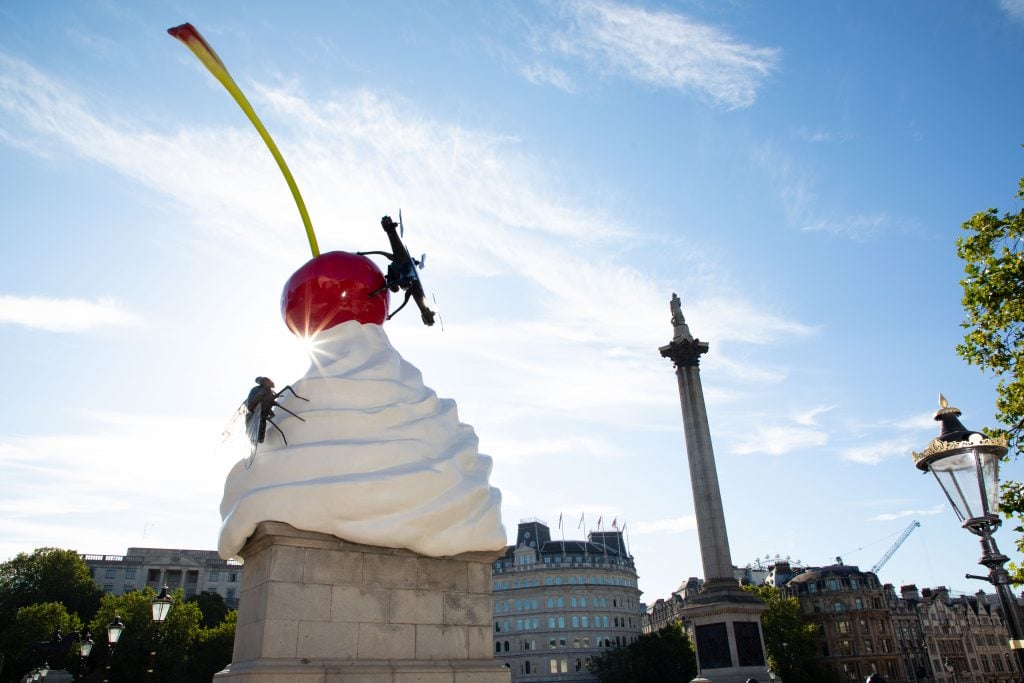On View
After a Four-Month Delay, Heather Phillipson’s Giant Whipped-Cream Sculpture Has Been Unveiled in London’s Trafalgar Square
The sculpture will be in place until spring 2022.

The sculpture will be in place until spring 2022.

Naomi Rea

Artist Heather Phillipson’s long-awaited sculpture for London’s Fourth Plinth has been unveiled in Trafalgar Square.
Originally slated to be installed in March, the coronavirus outbreak postponed the artist’s big moment until today, July 30.
The sculpture depicts a towering pile of whipped cream topped with a great red cherry, an absurdly large fly, and a functioning drone. The drone casts live images to a website set up by the artist, providing a sculpture’s-eye view of one of London’s most heavily trafficked squares. An accompanying audio-collage by the artist is also available online.
“I’m honored to have been selected to make work for such a significant public site, and to see THE END scaled up for its ultimate size and context—one in which the surrounding architecture and its population are participants in a mis-scaled landscape,” Phillipson said in a statement.

Heather Phillipson’s THE END sculpture for the Fourth Plinth is unveiled in London. Photo by David Parry/ PA Wire.
While the sculpture was conceived long before the current global crisis, its title, THE END, seems especially resonant. But as Phillipson told Artnet News in an interview earlier this year: “It feels like, politically, entropy has been happening for a long time now.”
The sculpture’s whipped cream, piled high and on the verge of collapse, is a gesture towards the excesses of globalized society; and the drone, situated not far from the Houses of Parliament, is a comment on institutionalized surveillance..
The sculpture will be in place until spring 2022, and is the 13th public art project to grace the Fourth Plinth since the program began in 1998. Among recent commissions in the series was Michael Rakowitz’s contemporary recreation of a lost ancient Assyrian guardian sculpture that was destroyed by Islamist extremists in 2015.
Phillipson is the third woman after Rachel Whiteread and Katharina Fritsch to be commissioned in the series. Her work is also the first to be accessible to those with hearing and visual impairments, with a braille panel on the plaque including a tactile image of the work, and an audio description of it available online.